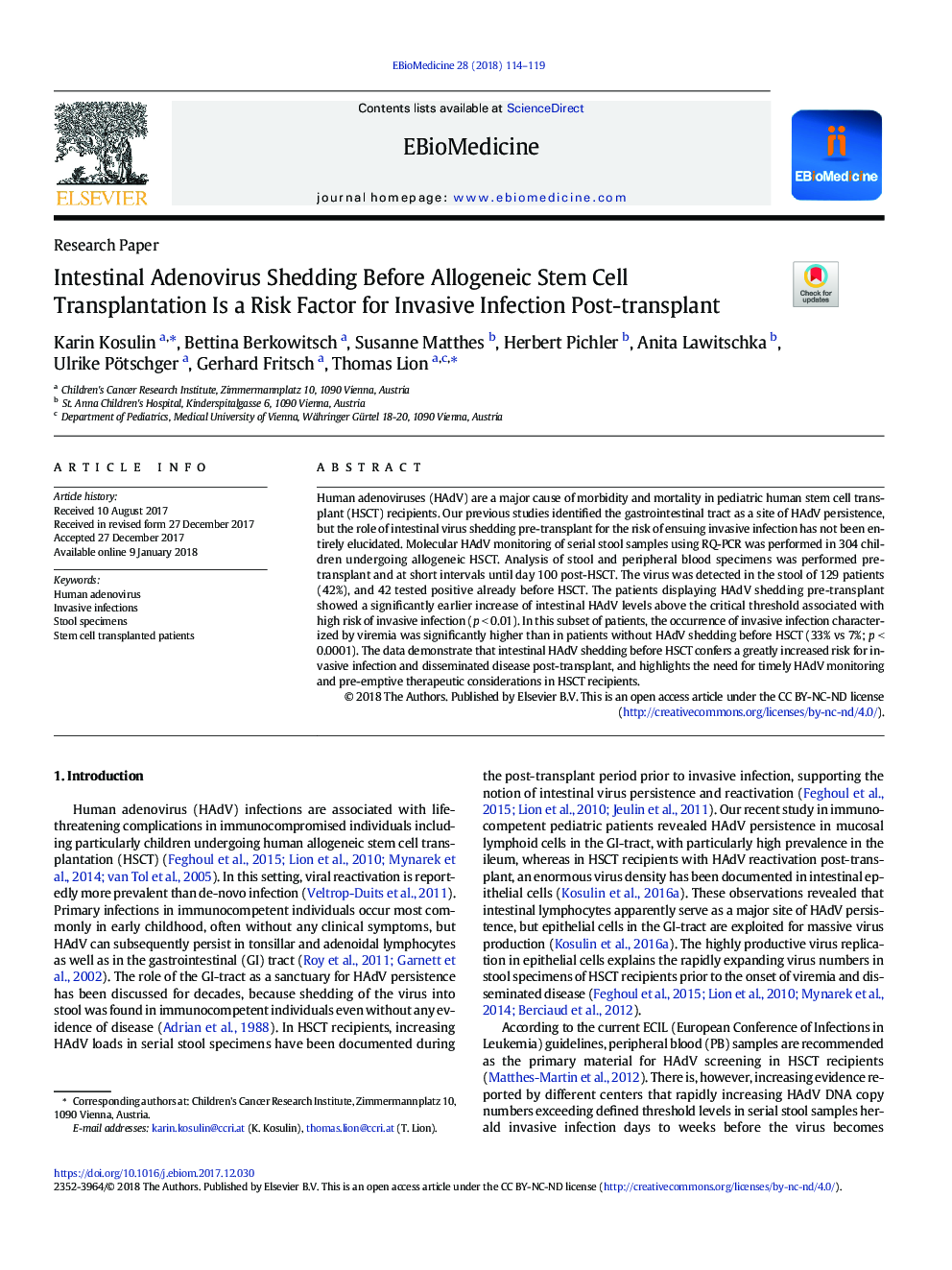| Article ID | Journal | Published Year | Pages | File Type |
|---|---|---|---|---|
| 8437518 | EBioMedicine | 2018 | 6 Pages |
Abstract
Human adenoviruses (HAdV) are a major cause of morbidity and mortality in pediatric human stem cell transplant (HSCT) recipients. Our previous studies identified the gastrointestinal tract as a site of HAdV persistence, but the role of intestinal virus shedding pre-transplant for the risk of ensuing invasive infection has not been entirely elucidated. Molecular HAdV monitoring of serial stool samples using RQ-PCR was performed in 304 children undergoing allogeneic HSCT. Analysis of stool and peripheral blood specimens was performed pre-transplant and at short intervals until day 100 post-HSCT. The virus was detected in the stool of 129 patients (42%), and 42 tested positive already before HSCT. The patients displaying HAdV shedding pre-transplant showed a significantly earlier increase of intestinal HAdV levels above the critical threshold associated with high risk of invasive infection (p < 0.01). In this subset of patients, the occurrence of invasive infection characterized by viremia was significantly higher than in patients without HAdV shedding before HSCT (33% vs 7%; p < 0.0001). The data demonstrate that intestinal HAdV shedding before HSCT confers a greatly increased risk for invasive infection and disseminated disease post-transplant, and highlights the need for timely HAdV monitoring and pre-emptive therapeutic considerations in HSCT recipients.
Keywords
Related Topics
Life Sciences
Biochemistry, Genetics and Molecular Biology
Cancer Research
Authors
Karin Kosulin, Bettina Berkowitsch, Susanne Matthes, Herbert Pichler, Anita Lawitschka, Ulrike Pötschger, Gerhard Fritsch, Thomas Lion,
